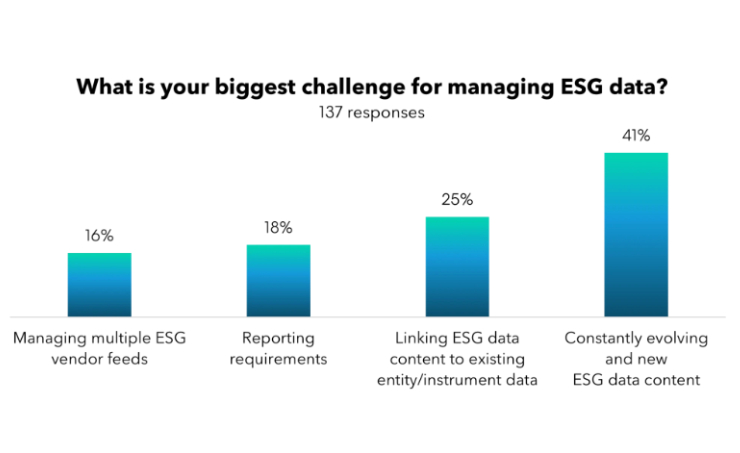ESG scoring is a system used to measure a company’s environmental, social, and governance (ESG) performance. ESG scoring helps investors, stakeholders, and customers evaluate a company’s sustainability efforts and ethical practices. The ESG scoring methodology looks at various factors, including a company’s carbon footprint, human rights policies, employee diversity, and board diversity, among others.
ESG scoring is important to businesses because it affects their reputation, financial performance, and access to capital. In recent years, ESG considerations have gained prominence in the investment community. Institutional investors such as pension funds, asset managers, and insurance companies are increasingly incorporating ESG factors into their investment decision-making process. According to a report by the Global Sustainable Investment Alliance (GSIA), global sustainable investment assets reached $35.3 trillion in 2020, up 15% from 2018.
The rise in ESG investing has put pressure on companies to improve their ESG performance. ESG scoring can help businesses identify areas for improvement and benchmark themselves against their peers. Companies with high ESG scores are more likely to attract sustainable investors and secure financing at better terms.
Environmental Factors: The environmental factor of ESG scoring evaluates a company’s impact on the environment. It looks at a company’s carbon emissions, energy consumption, water usage, waste management, and environmental policies. The environmental factor is crucial because climate change and environmental degradation pose a significant threat to the global economy and society.
Companies that perform well on environmental factors can benefit from cost savings, improved brand reputation, and reduced regulatory risks. For example, a company that invests in renewable energy can reduce its energy costs and demonstrate its commitment to reducing its carbon footprint.
Social Factors: The social factor of ESG scoring evaluates a company’s impact on society. It looks at a company’s human rights policies, labour practices, supply chain management, and community engagement. The social factor is important because businesses have a responsibility to respect human rights and contribute positively to the communities in which they operate.
Companies that perform well on social factors can benefit from improved employee morale, enhanced brand reputation, and reduced legal and reputational risks. For example, a company that adopts fair labour practices can improve employee retention and attract new talent.
Governance Factors: The governance factor of ESG scoring evaluates a company’s corporate governance practices. It looks at a company’s board structure, executive compensation, shareholder rights, and anti-corruption policies. The governance factor is important because it ensures that companies are transparent, accountable, and ethical in their decision-making. Companies that perform well on governance factors can benefit from improved shareholder confidence, reduced legal and reputational risks, and access to capital at better terms. For example, a company that has an independent board of directors can demonstrate its commitment to transparency and accountability.
ESG Scoring Methodologies: There are several ESG scoring methodologies available, each with its own approach and criteria. Some of the most popular ESG scoring methodologies include:
- MSCI ESG Ratings: MSCI ESG Ratings is a widely used ESG scoring system that evaluates companies based on over 1,000 data points across 37 ESG issues.
- Sustainalytics ESG Risk Ratings: Sustainalytics ESG Risk Ratings evaluate companies based on 10 ESG risk categories, including human rights, labour practices, and environmental management.
- FTSE4Good Index Series: FTSE4Good Index Series is a family of ESG indexes that evaluates companies based on their ESG performance relative to their peers.
- Dow Jones Sustainability Indices (DJSI): DJSI is a family of ESG indexes that evaluates companies based on their sustainability performance across economic, environmental, and social factors.
- Corporate Knights Global 100: Corporate Knights Global 100 is an annual ranking.
How does MSCI’s ESG scoring Methodology work:
MSCI (Morgan Stanley Capital International) is one of the largest providers of ESG (Environmental, Social, and Governance) ratings and data for investors. MSCI’s ESG scoring methodology is based on a company’s exposure to ESG risks and its management of those risks. Here is an overview of MSCI’s ESG scoring methodology:
- Data collection: MSCI collects ESG data from a variety of sources, including company disclosures, regulatory filings, news articles, and third-party data providers. MSCI’s ESG data covers more than 8,500 companies worldwide.
- Materiality analysis: MSCI uses a materiality analysis to determine which ESG issues are most relevant to a particular company or industry. This involves assessing the potential impact of each ESG factor on the company’s financial performance and risk profile. MSCI’s materiality framework is based on the Sustainability Accounting Standards Board (SASB) and the Task Force on Climate-related Financial Disclosures (TCFD) frameworks.
- ESG rating methodology: MSCI’s ESG rating methodology is based on a company’s exposure to ESG risks and its management of those risks. MSCI assigns an overall ESG rating to each company, as well as separate ratings for each of the three ESG categories: environmental, social, and governance.
- Exposure score: MSCI’s exposure score assesses a company’s exposure to ESG risks. This score is based on the company’s performance relative to industry peers, as well as absolute performance against MSCI’s ESG standards. MSCI’s exposure score considers both quantitative and qualitative factors, such as greenhouse gas emissions, labour standards, and board diversity.
- Management score: MSCI’s management score assesses a company’s management of ESG risks. This score is based on the company’s policies, programs, and performance in managing ESG risks. MSCI’s management score considers both the quality of a company’s ESG policies and its implementation of those policies.
- Controversy score: MSCI’s controversy score assesses a company’s exposure to ESG controversies, such as environmental accidents, labour disputes, or governance scandals. MSCI’s controversy score considers the severity and frequency of controversies, as well as the company’s response to those controversies.
- ESG rating aggregation: MSCI aggregates the exposure score, management score, and controversy score to generate an overall ESG rating for each company. The overall ESG rating is based on a scale of AAA to CCC, with AAA being the highest rating.
MSCI’s ESG scoring methodology is based on a company’s exposure to ESG risks and its management of those risks. By assessing both exposure and management, MSCI seeks to identify companies that are well-positioned to deliver sustainable long-term financial returns while managing risks associated with environmental, social, and governance issues. MSCI’s ESG ratings are widely used by investors to inform investment decisions and to promote positive social and environmental outcomes.
ESG Scores in action
Some companies have received negative attention and criticism for their poor ESG practices. For example, fossil fuel companies such as ExxonMobil and Chevron have received criticism for their significant contribution to greenhouse gas emissions and the negative environmental impact of their operations. Similarly, companies such as Amazon and Walmart have faced criticism for their labour practices, including low wages, poor working conditions, and anti-union policies.
In addition to individual company performance, some industries have been historically criticized for their poor ESG performance. For example, the fashion industry has been criticized for its significant environmental impact, including water usage, pollution, and waste generation, as well as labour exploitation and poor working conditions in its supply chains.
ESG Scores Impacting Credit Ratings
Credit rating agencies (CRAs) are increasingly incorporating ESG (Environmental, Social, and Governance) factors into their credit assessments to better evaluate the creditworthiness of issuers. To assess ESG risk, CRAs typically use a combination of quantitative and qualitative analysis, including:
- Data collection: CRAs gather ESG-related information from a variety of sources, such as public disclosures, industry reports, news articles, and third-party data providers.
- Materiality analysis: CRAs use a materiality analysis to determine which ESG factors are most relevant to a particular issuer or industry. This involves assessing the potential impact of each ESG factor on the issuer’s financial performance and creditworthiness.
- Scoring methodologies: CRAs use a variety of scoring methodologies to assess ESG risk. For example, they may use a weighted average score based on different ESG categories, such as climate change, labour practices, and corporate governance. They may also use a qualitative rating system, such as assigning a “positive,” “neutral,” or “negative” rating based on the issuer’s ESG performance.
- Sector-specific analysis: CRAs may conduct sector-specific analysis to assess ESG risk in industries that have unique ESG-related risks and opportunities. For example, they may assess the carbon footprint of a company in the energy sector, or the labour practices of a company in the apparel industry.
- Engagement with issuers: CRAs may engage with issuers to gather additional information on their ESG practices and to discuss any concerns or potential risks.
- Integration with credit analysis: CRAs integrate their ESG risk assessments with their traditional credit analysis to determine the overall creditworthiness of an issuer. They may consider ESG risks alongside financial risks, such as leverage, liquidity, and cash flow.
CRAs assess ESG risk using a comprehensive and multifaceted approach that considers a range of quantitative and qualitative factors. By incorporating ESG risk assessments into their credit ratings, CRAs are better able to identify and communicate the potential financial risks and opportunities associated with ESG factors. This can help investors and other stakeholders make more informed investment and risk management decisions.
Conclusion:
ESG (Environmental, Social, and Governance) scoring has become significantly important to businesses in recent years. ESG scoring is a way of measuring a company’s performance on sustainability and ethical issues, and it is increasingly being used by investors, lenders, and other stakeholders to evaluate a company’s long-term financial prospects.
Businesses that perform well on ESG scoring are more likely to attract investment and secure favourable financing terms, as investors and lenders increasingly prioritize sustainability and ethical considerations in their decision-making. ESG scoring can also help businesses identify areas where they can improve their environmental, social, and governance practices, leading to operational efficiencies, risk mitigation, and enhanced reputation.
ESG scoring can be used to evaluate supply chain partners, identify potential risks and opportunities, and build more resilient and sustainable value chains. Additionally, ESG scoring can help businesses demonstrate their commitment to sustainability and ethical practices, leading to increased stakeholder trust and loyalty.
ESG scoring is significantly important to businesses as it provides a comprehensive assessment of a company’s performance on sustainability and ethical issues, informs investment and financing decisions, identifies areas for improvement, and enhances reputation and stakeholder trust. As the importance of ESG continues to grow, businesses that prioritise sustainability and ethical practices are likely to be better positioned to deliver long-term value and drive positive social and environmental outcomes. ESG Impact can help your business with:
-
ESG Reporting
-
ESG Strategy
-
ESG Scoring
-
ESG Sustainability
Contact us today on info@43.216.228.42










